| # |
type |
message |
| 1 |  Routing Routing | connect "/captcha" |
| 2 |  Context Context | initialization |
| 3 |  Controller Controller | initialization |
| 4 |  Routing Routing | match route [na_vif] "/:make/:model/:id" |
| 5 |  Request Request | request parameters array ( 'make' => 'volkswagen', 'model' => 't2', 'id' => '164943', 'module' => 'home', 'action' => 'view',) |
| 6 |  Routing Routing | connect "/sf_cache_partial/:module/:action/:sf_cache_key" |
| 7 |  Creole Creole | connect(): DSN: array ( 'compat_assoc_lower' => '****', 'compat_rtrim_string' => '****', 'database' => '****', 'encoding' => '****', 'hostspec' => '****', 'password' => '****', 'persistent' => '****', 'phptype' => '****', 'port' => '****', 'protocol' => '****', 'socket' => '****', 'username' => '****', ), FLAGS: 0 |
| 8 |  Creole Creole | prepareStatement(): SET time_zone = '+01:00' |
| 9 |  Creole Creole | executeUpdate(): SET time_zone = '+01:00' |
| 10 |  Creole Creole | connect(): DSN: array ( 'compat_assoc_lower' => '****', 'compat_rtrim_string' => '****', 'database' => '****', 'encoding' => '****', 'hostspec' => '****', 'password' => '****', 'persistent' => '****', 'phptype' => '****', 'port' => '****', 'protocol' => '****', 'socket' => '****', 'username' => '****', ), FLAGS: 0 |
| 11 |  Creole Creole | prepareStatement(): SET time_zone = '+01:00' |
| 12 |  Creole Creole | executeUpdate(): SET time_zone = '+01:00' |
| 13 |  Creole Creole | connect(): DSN: array ( 'compat_assoc_lower' => '****', 'compat_rtrim_string' => '****', 'database' => '****', 'encoding' => '****', 'hostspec' => '****', 'password' => '****', 'persistent' => '****', 'phptype' => '****', 'port' => '****', 'protocol' => '****', 'socket' => '****', 'username' => '****', ), FLAGS: 0 |
| 14 |  Creole Creole | prepareStatement(): SET time_zone = '+01:00' |
| 15 |  Creole Creole | executeUpdate(): SET time_zone = '+01:00' |
| 16 |  Creole Creole | connect(): DSN: array ( 'compat_assoc_lower' => '****', 'compat_rtrim_string' => '****', 'database' => '****', 'encoding' => '****', 'hostspec' => '****', 'password' => '****', 'persistent' => '****', 'phptype' => '****', 'port' => '****', 'protocol' => '****', 'socket' => '****', 'username' => '****', ), FLAGS: 0 |
| 17 |  Creole Creole | prepareStatement(): SET time_zone = '+01:00' |
| 18 |  Creole Creole | executeUpdate(): SET time_zone = '+01:00' |
| 19 |  Creole Creole | connect(): DSN: array ( 'compat_assoc_lower' => '****', 'compat_rtrim_string' => '****', 'database' => '****', 'encoding' => '****', 'hostspec' => '****', 'password' => '****', 'persistent' => '****', 'phptype' => '****', 'port' => '****', 'protocol' => '****', 'socket' => '****', 'username' => '****', ), FLAGS: 0 |
| 20 |  Creole Creole | prepareStatement(): SET time_zone = '+01:00' |
| 21 |  Creole Creole | executeUpdate(): SET time_zone = '+01:00' |
| 22 |  Controller Controller | dispatch request |
| 23 |  Filter Filter | executing filter "sfRenderingFilter" |
| 24 |  Filter Filter | executing filter "sfWebDebugFilter" |
| 25 |  Filter Filter | executing filter "sfCarViewFilter" |
| 26 |  Filter Filter | executing filter "naBreadcrumbFilter" |
| 27 |  Filter Filter | executing filter "sfCacheFilter" |
| 28 |  Filter Filter | executing filter "sfCommonFilter" |
| 29 |  Filter Filter | executing filter "sfFlashFilter" |
| 30 |  Filter Filter | executing filter "sfExecutionFilter" |
| 31 |  Action Action | call "homeActions->executeView()" |
| 32 |  Creole Creole | prepareStatement(): SELECT car.ID, car.ID_NETTI_USER, car.ID_MAKE, car.ID_MODEL, car.ID_VEHICLE_TYPE, car.MFG_YEAR, car.MILEAGE, car.ENGINE_SIZE, car.ENGINE_MODEL, car.ID_ACC, car.DEALER_IDENTIFIER, car.CURRENCY, car.PRICE_ASK, car.PRICE_STATUS, car.DRIVE_SIDE, car.FIRST_REG, car.STATUS, car.POSTED_BY, car.STAY_UNKNOWN, car.DATE_CREATE, car.DATE_MODIFY, car.LOCATION, car_info.ID, car_info.ID_CAR, car_info.HOOVER_ID, car_info.REG_NO, car_info.SHOW_REG, car_info.ID_CAR_TYPE, car_info.ID_COLOR, car_info.ID_COLOR_TYPE, car_info.AD_CONDITION, car_info.DOCUMENTED_HISTORY, car_info.COMPETITION_HISTORY, car_info.REGISTERED_VEHICLE, car_info.MANUFACTURE_COUNTRY, car_info.DELIVERY_COUNTRY, car_info.GENERAL_DESCRIPTION, car_info.DOCUMENT_DESCRIPTION, car_info.COMPETITION_DESCRIPTION, car_info.TAGS, car_info.YOUTUBE_VID1, car_info.YOUTUBE_VID2, car_info.NOTE, car_info.REMARK, car_info.SHOW_DATE, car.ID AS ID_AD, UNIX_TIMESTAMP(car.DATE_CREATE) AS ENROLL_DATE, UNIX_TIMESTAMP(car.DATE_MODIFY) AS MODIFY_DATE, DATE_FORMAT(car.DATE_MODIFY,'%d.%m.%Y') AS DM, make.MAKE_EN AS MAKE, model.MODEL_EN AS MODEL, make.MAKE_EN AS MAKE_en, model.MODEL_EN AS MODEL_en, vehicle_type.VEHICLE_TYPE_EN AS VEHICLE_TYPE, car_type.CAR_TYPE_EN AS CAR_TYPE, color.COLOR_EN AS COLOR, color_type.COLOR_TYPE_EN AS COLOR_TYPE, car_stat.HIT_AD_INFO AS AD_HIT FROM car LEFT JOIN car_info ON (car.ID=car_info.ID_CAR) LEFT JOIN make ON (car.ID_MAKE=make.ID) LEFT JOIN model ON (car.ID_MODEL=model.ID) LEFT JOIN vehicle_type ON (car.ID_VEHICLE_TYPE=vehicle_type.ID) LEFT JOIN car_type ON (car_info.ID_CAR_TYPE=car_type.ID) LEFT JOIN color ON (car_info.ID_COLOR=color.ID) LEFT JOIN color_type ON (car_info.ID_COLOR_TYPE=color_type.ID) LEFT JOIN car_stat ON (car.ID=car_stat.ID_AD) WHERE car.ID=? AND car.STATUS=? |
| 33 |  Creole Creole | executeQuery(): [1.28 ms] SELECT car.ID, car.ID_NETTI_USER, car.ID_MAKE, car.ID_MODEL, car.ID_VEHICLE_TYPE, car.MFG_YEAR, car.MILEAGE, car.ENGINE_SIZE, car.ENGINE_MODEL, car.ID_ACC, car.DEALER_IDENTIFIER, car.CURRENCY, car.PRICE_ASK, car.PRICE_STATUS, car.DRIVE_SIDE, car.FIRST_REG, car.STATUS, car.POSTED_BY, car.STAY_UNKNOWN, car.DATE_CREATE, car.DATE_MODIFY, car.LOCATION, car_info.ID, car_info.ID_CAR, car_info.HOOVER_ID, car_info.REG_NO, car_info.SHOW_REG, car_info.ID_CAR_TYPE, car_info.ID_COLOR, car_info.ID_COLOR_TYPE, car_info.AD_CONDITION, car_info.DOCUMENTED_HISTORY, car_info.COMPETITION_HISTORY, car_info.REGISTERED_VEHICLE, car_info.MANUFACTURE_COUNTRY, car_info.DELIVERY_COUNTRY, car_info.GENERAL_DESCRIPTION, car_info.DOCUMENT_DESCRIPTION, car_info.COMPETITION_DESCRIPTION, car_info.TAGS, car_info.YOUTUBE_VID1, car_info.YOUTUBE_VID2, car_info.NOTE, car_info.REMARK, car_info.SHOW_DATE, car.ID AS ID_AD, UNIX_TIMESTAMP(car.DATE_CREATE) AS ENROLL_DATE, UNIX_TIMESTAMP(car.DATE_MODIFY) AS MODIFY_DATE, DATE_FORMAT(car.DATE_MODIFY,'%d.%m.%Y') AS DM, make.MAKE_EN AS MAKE, model.MODEL_EN AS MODEL, make.MAKE_EN AS MAKE_en, model.MODEL_EN AS MODEL_en, vehicle_type.VEHICLE_TYPE_EN AS VEHICLE_TYPE, car_type.CAR_TYPE_EN AS CAR_TYPE, color.COLOR_EN AS COLOR, color_type.COLOR_TYPE_EN AS COLOR_TYPE, car_stat.HIT_AD_INFO AS AD_HIT FROM car LEFT JOIN car_info ON (car.ID=car_info.ID_CAR) LEFT JOIN make ON (car.ID_MAKE=make.ID) LEFT JOIN model ON (car.ID_MODEL=model.ID) LEFT JOIN vehicle_type ON (car.ID_VEHICLE_TYPE=vehicle_type.ID) LEFT JOIN car_type ON (car_info.ID_CAR_TYPE=car_type.ID) LEFT JOIN color ON (car_info.ID_COLOR=color.ID) LEFT JOIN color_type ON (car_info.ID_COLOR_TYPE=color_type.ID) LEFT JOIN car_stat ON (car.ID=car_stat.ID_AD) WHERE car.ID=164943 AND car.STATUS='F' |
| 34 |  Creole Creole | prepareStatement(): SELECT netti_user.ID, netti_user.FNAME, netti_user.LNAME, netti_user.ADDRESS, netti_user.CITY, netti_user.EMAIL, netti_user.PHONE, netti_user.FAX, netti_user.MOBILE, netti_user.EMAIL, netti_user.ZIP, netti_user.CONT_TIME, netti_user.DOMICILE, netti_user.ID_COUNTRY, netti_user.CATEGORY, netti_user.LOGINID FROM netti_user WHERE netti_user.ID IN (?) |
| 35 |  Creole Creole | executeQuery(): [0.65 ms] SELECT netti_user.ID, netti_user.FNAME, netti_user.LNAME, netti_user.ADDRESS, netti_user.CITY, netti_user.EMAIL, netti_user.PHONE, netti_user.FAX, netti_user.MOBILE, netti_user.EMAIL, netti_user.ZIP, netti_user.CONT_TIME, netti_user.DOMICILE, netti_user.ID_COUNTRY, netti_user.CATEGORY, netti_user.LOGINID FROM netti_user WHERE netti_user.ID IN (1493) |
| 36 |  Creole Creole | prepareStatement(): SELECT car.ID, car.ID_NETTI_USER, car.ID_MAKE, car.ID_MODEL, car.ID_VEHICLE_TYPE, car.MFG_YEAR, car.MILEAGE, car.ENGINE_SIZE, car.ENGINE_MODEL, car.ID_ACC, car.DEALER_IDENTIFIER, car.CURRENCY, car.PRICE_ASK, car.PRICE_STATUS, car.DRIVE_SIDE, car.FIRST_REG, car.STATUS, car.POSTED_BY, car.STAY_UNKNOWN, car.DATE_CREATE, car.DATE_MODIFY, car.LOCATION, car_info.ID, car_info.ID_CAR, car_info.HOOVER_ID, car_info.REG_NO, car_info.SHOW_REG, car_info.ID_CAR_TYPE, car_info.ID_COLOR, car_info.ID_COLOR_TYPE, car_info.AD_CONDITION, car_info.DOCUMENTED_HISTORY, car_info.COMPETITION_HISTORY, car_info.REGISTERED_VEHICLE, car_info.MANUFACTURE_COUNTRY, car_info.DELIVERY_COUNTRY, car_info.GENERAL_DESCRIPTION, car_info.DOCUMENT_DESCRIPTION, car_info.COMPETITION_DESCRIPTION, car_info.TAGS, car_info.YOUTUBE_VID1, car_info.YOUTUBE_VID2, car_info.NOTE, car_info.REMARK, car_info.SHOW_DATE, DATE_ADD(car.DATE_MODIFY,INTERVAL 3 DAY) AS DM FROM car LEFT JOIN car_info ON (car.ID=car_info.ID_CAR) WHERE car.ID=? |
| 37 |  Creole Creole | executeQuery(): [1.10 ms] SELECT car.ID, car.ID_NETTI_USER, car.ID_MAKE, car.ID_MODEL, car.ID_VEHICLE_TYPE, car.MFG_YEAR, car.MILEAGE, car.ENGINE_SIZE, car.ENGINE_MODEL, car.ID_ACC, car.DEALER_IDENTIFIER, car.CURRENCY, car.PRICE_ASK, car.PRICE_STATUS, car.DRIVE_SIDE, car.FIRST_REG, car.STATUS, car.POSTED_BY, car.STAY_UNKNOWN, car.DATE_CREATE, car.DATE_MODIFY, car.LOCATION, car_info.ID, car_info.ID_CAR, car_info.HOOVER_ID, car_info.REG_NO, car_info.SHOW_REG, car_info.ID_CAR_TYPE, car_info.ID_COLOR, car_info.ID_COLOR_TYPE, car_info.AD_CONDITION, car_info.DOCUMENTED_HISTORY, car_info.COMPETITION_HISTORY, car_info.REGISTERED_VEHICLE, car_info.MANUFACTURE_COUNTRY, car_info.DELIVERY_COUNTRY, car_info.GENERAL_DESCRIPTION, car_info.DOCUMENT_DESCRIPTION, car_info.COMPETITION_DESCRIPTION, car_info.TAGS, car_info.YOUTUBE_VID1, car_info.YOUTUBE_VID2, car_info.NOTE, car_info.REMARK, car_info.SHOW_DATE, DATE_ADD(car.DATE_MODIFY,INTERVAL 3 DAY) AS DM FROM car LEFT JOIN car_info ON (car.ID=car_info.ID_CAR) WHERE car.ID=164943 |
| 38 |  Creole Creole | prepareStatement(): SELECT COUNT(hoover_check.ID) FROM hoover_check WHERE hoover_check.ID_CAR=? |
| 39 |  Creole Creole | executeQuery(): [0.73 ms] SELECT COUNT(hoover_check.ID) FROM hoover_check WHERE hoover_check.ID_CAR=164943 |
| 40 |  Creole Creole | prepareStatement(): SELECT COUNT(fa_payment_order.ID) FROM fa_payment_order WHERE fa_payment_order.ID_PRODUCT=? AND fa_payment_order.PAYMENT_STATUS=? AND fa_payment_order.UPSELLS_TAKEN=? |
| 41 |  Creole Creole | executeQuery(): [0.71 ms] SELECT COUNT(fa_payment_order.ID) FROM fa_payment_order WHERE fa_payment_order.ID_PRODUCT=164943 AND fa_payment_order.PAYMENT_STATUS='S' AND fa_payment_order.UPSELLS_TAKEN='2' |
| 42 |  Creole Creole | prepareStatement(): SELECT package_type.ID, package_type.TITLE_EN, package_type.DESCRIPTION_EN, package_type.TITLE_DE, package_type.DESCRIPTION_DE, package_type.TITLE_SV, package_type.DESCRIPTION_SV, package_type.PRICE FROM package_type WHERE package_type.ID=? |
| 43 |  Creole Creole | executeQuery(): [0.62 ms] SELECT package_type.ID, package_type.TITLE_EN, package_type.DESCRIPTION_EN, package_type.TITLE_DE, package_type.DESCRIPTION_DE, package_type.TITLE_SV, package_type.DESCRIPTION_SV, package_type.PRICE FROM package_type WHERE package_type.ID='1' |
| 44 |  Creole Creole | prepareStatement(): SELECT carimg.ID, carimg.ID_AD, carimg.PATH, carimg.IMG_HASH, carimg.ORIGINAL, carimg.ORD, carimg.WIDTH, carimg.HEIGHT FROM carimg WHERE carimg.ID_AD IN (164943) ORDER BY carimg.ORD ASC |
| 45 |  Creole Creole | executeQuery(): [0.61 ms] SELECT carimg.ID, carimg.ID_AD, carimg.PATH, carimg.IMG_HASH, carimg.ORIGINAL, carimg.ORD, carimg.WIDTH, carimg.HEIGHT FROM carimg WHERE carimg.ID_AD IN (164943) ORDER BY carimg.ORD ASC |
| 46 |  Creole Creole | prepareStatement(): SELECT netti_user.ID, netti_user.FNAME, netti_user.LNAME, netti_user.ADDRESS, netti_user.CITY, netti_user.EMAIL, netti_user.PHONE, netti_user.FAX, netti_user.MOBILE, netti_user.EMAIL, netti_user.ZIP, netti_user.CONT_TIME, netti_user.DOMICILE, netti_user.ID_COUNTRY, netti_user.CATEGORY, netti_user.LOGINID FROM netti_user WHERE netti_user.ID IN (?) |
| 47 |  Creole Creole | executeQuery(): [0.62 ms] SELECT netti_user.ID, netti_user.FNAME, netti_user.LNAME, netti_user.ADDRESS, netti_user.CITY, netti_user.EMAIL, netti_user.PHONE, netti_user.FAX, netti_user.MOBILE, netti_user.EMAIL, netti_user.ZIP, netti_user.CONT_TIME, netti_user.DOMICILE, netti_user.ID_COUNTRY, netti_user.CATEGORY, netti_user.LOGINID FROM netti_user WHERE netti_user.ID IN (1493) |
| 48 |  Creole Creole | prepareStatement(): SELECT model.ID, model.ID_MAKE, model.MODEL_EN, model.MODEL_DE, model.MODEL_SV, model.DESCRIPTION_EN, model.DESCRIPTION_DE, model.DESCRIPTION_SV, model.COUNTER, model.ORD, model.DATE_CREATE, model.DATE_MODIFY, model.ID_VEHICLE_TYPE, model.ID_DRIVE_TYPE, model.DATE_RANDOM, make.DESCRIPTION_EN AS MAKE_DESC, model.DESCRIPTION_EN AS MODEL_DESC FROM model, make WHERE make.ID=? AND model.ID=? AND make.ID=model.ID_MAKE |
| 49 |  Creole Creole | executeQuery(): [0.62 ms] SELECT model.ID, model.ID_MAKE, model.MODEL_EN, model.MODEL_DE, model.MODEL_SV, model.DESCRIPTION_EN, model.DESCRIPTION_DE, model.DESCRIPTION_SV, model.COUNTER, model.ORD, model.DATE_CREATE, model.DATE_MODIFY, model.ID_VEHICLE_TYPE, model.ID_DRIVE_TYPE, model.DATE_RANDOM, make.DESCRIPTION_EN AS MAKE_DESC, model.DESCRIPTION_EN AS MODEL_DESC FROM model, make WHERE make.ID=175 AND model.ID=2669 AND make.ID=model.ID_MAKE |
| 50 |  Creole Creole | prepareStatement(): ( SELECT car.ID, car.ID_NETTI_USER, car.ID_MAKE, car.ID_MODEL, car.ID_VEHICLE_TYPE, car.MFG_YEAR, car.MILEAGE, car.ENGINE_SIZE, car.ENGINE_MODEL, car.ID_ACC, car.DEALER_IDENTIFIER, car.CURRENCY, car.PRICE_ASK, car.PRICE_STATUS, car.DRIVE_SIDE, car.FIRST_REG, car.STATUS, car.POSTED_BY, car.STAY_UNKNOWN, car.DATE_CREATE, car.DATE_MODIFY, car.LOCATION, car.ID AS ID_AD, UNIX_TIMESTAMP(car.DATE_CREATE) AS ENROLL_DATE, UNIX_TIMESTAMP(car.DATE_MODIFY) AS MODIFY_DATE, car_info.ID_CAR_TYPE AS ID_CAR_TYPE, car_info.GENERAL_DESCRIPTION AS GENERAL_DESCRIPTION, car_info.DOCUMENT_DESCRIPTION AS DOCUMENT_DESCRIPTION, car_info.COMPETITION_DESCRIPTION AS COMPETITION_DESCRIPTION, car_info.NOTE FROM cd_cars.car LEFT JOIN cd_cars.make ON (car.ID_MAKE=make.ID) LEFT JOIN cd_cars.model ON (car.ID_MODEL=model.ID) LEFT JOIN cd_cars.car_info ON (car.ID=car_info.ID_CAR) WHERE car.status = 'F' AND car.ID != 164943 AND car.ID_MODEL = '2669' ) UNION ( SELECT car.ID, car.ID_NETTI_USER, car.ID_MAKE, car.ID_MODEL, car.ID_VEHICLE_TYPE, car.MFG_YEAR, car.MILEAGE, car.ENGINE_SIZE, car.ENGINE_MODEL, car.ID_ACC, car.DEALER_IDENTIFIER, car.CURRENCY, car.PRICE_ASK, car.PRICE_STATUS, car.DRIVE_SIDE, car.FIRST_REG, car.STATUS, car.POSTED_BY, car.STAY_UNKNOWN, car.DATE_CREATE, car.DATE_MODIFY, car.LOCATION, car.ID AS ID_AD, UNIX_TIMESTAMP(car.DATE_CREATE) AS ENROLL_DATE, UNIX_TIMESTAMP(car.DATE_MODIFY) AS MODIFY_DATE, car_info.ID_CAR_TYPE AS ID_CAR_TYPE, car_info.GENERAL_DESCRIPTION AS GENERAL_DESCRIPTION, car_info.DOCUMENT_DESCRIPTION AS DOCUMENT_DESCRIPTION, car_info.COMPETITION_DESCRIPTION AS COMPETITION_DESCRIPTION, car_info.NOTE FROM cd_cars.sold_car as car LEFT JOIN cd_cars.make ON (car.ID_MAKE=make.ID) LEFT JOIN cd_cars.model ON (car.ID_MODEL=model.ID) LEFT JOIN cd_cars.sold_car_info as car_info ON (car.ID=car_info.ID_CAR) WHERE car.status = 'S' and car.date_modify > DATE_SUB(NOW(), INTERVAL 1 WEEK) AND car.ID != 164943 AND car.ID_MODEL = '2669' ) ORDER BY ID DESC |
| 51 |  Creole Creole | prepareStatement(): SELECT COUNT( * ) AS count FROM ( ( SELECT car.id FROM cd_cars.car LEFT JOIN cd_cars.make ON (car.ID_MAKE=make.ID) LEFT JOIN cd_cars.model ON (car.ID_MODEL=model.ID) LEFT JOIN cd_cars.car_info ON (car.ID=car_info.ID_CAR) WHERE car.status = 'F' AND car.ID != 164943 AND car.ID_MODEL = '2669' ) UNION ( SELECT car.id FROM cd_cars.sold_car as car LEFT JOIN cd_cars.make ON (car.ID_MAKE=make.ID) LEFT JOIN cd_cars.model ON (car.ID_MODEL=model.ID) LEFT JOIN cd_cars.sold_car_info as car_info ON (car.ID=car_info.ID_CAR) WHERE car.status = 'S' and car.date_modify > DATE_SUB(NOW(), INTERVAL 1 WEEK) AND car.ID != 164943 AND car.ID_MODEL = '2669' ) ) AS count |
| 52 |  Creole Creole | executeQuery(): [2.34 ms] SELECT COUNT( * ) AS count FROM ( ( SELECT car.id FROM cd_cars.car LEFT JOIN cd_cars.make ON (car.ID_MAKE=make.ID) LEFT JOIN cd_cars.model ON (car.ID_MODEL=model.ID) LEFT JOIN cd_cars.car_info ON (car.ID=car_info.ID_CAR) WHERE car.status = 'F' AND car.ID != 164943 AND car.ID_MODEL = '2669' ) UNION ( SELECT car.id FROM cd_cars.sold_car as car LEFT JOIN cd_cars.make ON (car.ID_MAKE=make.ID) LEFT JOIN cd_cars.model ON (car.ID_MODEL=model.ID) LEFT JOIN cd_cars.sold_car_info as car_info ON (car.ID=car_info.ID_CAR) WHERE car.status = 'S' and car.date_modify > DATE_SUB(NOW(), INTERVAL 1 WEEK) AND car.ID != 164943 AND car.ID_MODEL = '2669' ) ) AS count |
| 53 |  Creole Creole | applyLimit(): ( SELECT car.ID, car.ID_NETTI_USER, car.ID_MAKE, car.ID_MODEL, car.ID_VEHICLE_TYPE, car.MFG_YEAR, car.MILEAGE, car.ENGINE_SIZE, car.ENGINE_MODEL, car.ID_ACC, car.DEALER_IDENTIFIER, car.CURRENCY, car.PRICE_ASK, car.PRICE_STATUS, car.DRIVE_SIDE, car.FIRST_REG, car.STATUS, car.POSTED_BY, car.STAY_UNKNOWN, car.DATE_CREATE, car.DATE_MODIFY, car.LOCATION, car.ID AS ID_AD, UNIX_TIMESTAMP(car.DATE_CREATE) AS ENROLL_DATE, UNIX_TIMESTAMP(car.DATE_MODIFY) AS MODIFY_DATE, car_info.ID_CAR_TYPE AS ID_CAR_TYPE, car_info.GENERAL_DESCRIPTION AS GENERAL_DESCRIPTION, car_info.DOCUMENT_DESCRIPTION AS DOCUMENT_DESCRIPTION, car_info.COMPETITION_DESCRIPTION AS COMPETITION_DESCRIPTION, car_info.NOTE FROM cd_cars.car LEFT JOIN cd_cars.make ON (car.ID_MAKE=make.ID) LEFT JOIN cd_cars.model ON (car.ID_MODEL=model.ID) LEFT JOIN cd_cars.car_info ON (car.ID=car_info.ID_CAR) WHERE car.status = 'F' AND car.ID != 164943 AND car.ID_MODEL = '2669' ) UNION ( SELECT car.ID, car.ID_NETTI_USER, car.ID_MAKE, car.ID_MODEL, car.ID_VEHICLE_TYPE, car.MFG_YEAR, car.MILEAGE, car.ENGINE_SIZE, car.ENGINE_MODEL, car.ID_ACC, car.DEALER_IDENTIFIER, car.CURRENCY, car.PRICE_ASK, car.PRICE_STATUS, car.DRIVE_SIDE, car.FIRST_REG, car.STATUS, car.POSTED_BY, car.STAY_UNKNOWN, car.DATE_CREATE, car.DATE_MODIFY, car.LOCATION, car.ID AS ID_AD, UNIX_TIMESTAMP(car.DATE_CREATE) AS ENROLL_DATE, UNIX_TIMESTAMP(car.DATE_MODIFY) AS MODIFY_DATE, car_info.ID_CAR_TYPE AS ID_CAR_TYPE, car_info.GENERAL_DESCRIPTION AS GENERAL_DESCRIPTION, car_info.DOCUMENT_DESCRIPTION AS DOCUMENT_DESCRIPTION, car_info.COMPETITION_DESCRIPTION AS COMPETITION_DESCRIPTION, car_info.NOTE FROM cd_cars.sold_car as car LEFT JOIN cd_cars.make ON (car.ID_MAKE=make.ID) LEFT JOIN cd_cars.model ON (car.ID_MODEL=model.ID) LEFT JOIN cd_cars.sold_car_info as car_info ON (car.ID=car_info.ID_CAR) WHERE car.status = 'S' and car.date_modify > DATE_SUB(NOW(), INTERVAL 1 WEEK) AND car.ID != 164943 AND car.ID_MODEL = '2669' ) ORDER BY ID DESC, offset: 0, limit: 5 |
| 54 |  Creole Creole | executeQuery(): [2.91 ms] ( SELECT car.ID, car.ID_NETTI_USER, car.ID_MAKE, car.ID_MODEL, car.ID_VEHICLE_TYPE, car.MFG_YEAR, car.MILEAGE, car.ENGINE_SIZE, car.ENGINE_MODEL, car.ID_ACC, car.DEALER_IDENTIFIER, car.CURRENCY, car.PRICE_ASK, car.PRICE_STATUS, car.DRIVE_SIDE, car.FIRST_REG, car.STATUS, car.POSTED_BY, car.STAY_UNKNOWN, car.DATE_CREATE, car.DATE_MODIFY, car.LOCATION, car.ID AS ID_AD, UNIX_TIMESTAMP(car.DATE_CREATE) AS ENROLL_DATE, UNIX_TIMESTAMP(car.DATE_MODIFY) AS MODIFY_DATE, car_info.ID_CAR_TYPE AS ID_CAR_TYPE, car_info.GENERAL_DESCRIPTION AS GENERAL_DESCRIPTION, car_info.DOCUMENT_DESCRIPTION AS DOCUMENT_DESCRIPTION, car_info.COMPETITION_DESCRIPTION AS COMPETITION_DESCRIPTION, car_info.NOTE FROM cd_cars.car LEFT JOIN cd_cars.make ON (car.ID_MAKE=make.ID) LEFT JOIN cd_cars.model ON (car.ID_MODEL=model.ID) LEFT JOIN cd_cars.car_info ON (car.ID=car_info.ID_CAR) WHERE car.status = 'F' AND car.ID != 164943 AND car.ID_MODEL = '2669' ) UNION ( SELECT car.ID, car.ID_NETTI_USER, car.ID_MAKE, car.ID_MODEL, car.ID_VEHICLE_TYPE, car.MFG_YEAR, car.MILEAGE, car.ENGINE_SIZE, car.ENGINE_MODEL, car.ID_ACC, car.DEALER_IDENTIFIER, car.CURRENCY, car.PRICE_ASK, car.PRICE_STATUS, car.DRIVE_SIDE, car.FIRST_REG, car.STATUS, car.POSTED_BY, car.STAY_UNKNOWN, car.DATE_CREATE, car.DATE_MODIFY, car.LOCATION, car.ID AS ID_AD, UNIX_TIMESTAMP(car.DATE_CREATE) AS ENROLL_DATE, UNIX_TIMESTAMP(car.DATE_MODIFY) AS MODIFY_DATE, car_info.ID_CAR_TYPE AS ID_CAR_TYPE, car_info.GENERAL_DESCRIPTION AS GENERAL_DESCRIPTION, car_info.DOCUMENT_DESCRIPTION AS DOCUMENT_DESCRIPTION, car_info.COMPETITION_DESCRIPTION AS COMPETITION_DESCRIPTION, car_info.NOTE FROM cd_cars.sold_car as car LEFT JOIN cd_cars.make ON (car.ID_MAKE=make.ID) LEFT JOIN cd_cars.model ON (car.ID_MODEL=model.ID) LEFT JOIN cd_cars.sold_car_info as car_info ON (car.ID=car_info.ID_CAR) WHERE car.status = 'S' and car.date_modify > DATE_SUB(NOW(), INTERVAL 1 WEEK) AND car.ID != 164943 AND car.ID_MODEL = '2669' ) ORDER BY ID DESC LIMIT 5 |
| 55 |  Creole Creole | prepareStatement(): SELECT carimg.ID, carimg.ID_AD, carimg.PATH, carimg.IMG_HASH, carimg.ORIGINAL, carimg.ORD, carimg.WIDTH, carimg.HEIGHT FROM carimg WHERE carimg.ID_AD IN (195236,191504,186392,143095,141969) ORDER BY carimg.ORD ASC |
| 56 |  Creole Creole | executeQuery(): [0.94 ms] SELECT carimg.ID, carimg.ID_AD, carimg.PATH, carimg.IMG_HASH, carimg.ORIGINAL, carimg.ORD, carimg.WIDTH, carimg.HEIGHT FROM carimg WHERE carimg.ID_AD IN (195236,191504,186392,143095,141969) ORDER BY carimg.ORD ASC |
| 57 |  Creole Creole | prepareStatement(): ( SELECT car.ID, car.ID_NETTI_USER, car.ID_MAKE, car.ID_MODEL, car.ID_VEHICLE_TYPE, car.MFG_YEAR, car.MILEAGE, car.ENGINE_SIZE, car.ENGINE_MODEL, car.ID_ACC, car.DEALER_IDENTIFIER, car.CURRENCY, car.PRICE_ASK, car.PRICE_STATUS, car.DRIVE_SIDE, car.FIRST_REG, car.STATUS, car.POSTED_BY, car.STAY_UNKNOWN, car.DATE_CREATE, car.DATE_MODIFY, car.LOCATION, car.ID AS ID_AD, UNIX_TIMESTAMP(car.DATE_CREATE) AS ENROLL_DATE, UNIX_TIMESTAMP(car.DATE_MODIFY) AS MODIFY_DATE, car_info.ID_CAR_TYPE AS ID_CAR_TYPE, car_info.GENERAL_DESCRIPTION AS GENERAL_DESCRIPTION, car_info.DOCUMENT_DESCRIPTION AS DOCUMENT_DESCRIPTION, car_info.COMPETITION_DESCRIPTION AS COMPETITION_DESCRIPTION, car_info.NOTE FROM cd_cars.car LEFT JOIN cd_cars.make ON (car.ID_MAKE=make.ID) LEFT JOIN cd_cars.model ON (car.ID_MODEL=model.ID) LEFT JOIN cd_cars.car_info ON (car.ID=car_info.ID_CAR) WHERE car.status = 'F' AND car.ID != '164943' AND car.ID_NETTI_USER = '1493' ) UNION ( SELECT car.ID, car.ID_NETTI_USER, car.ID_MAKE, car.ID_MODEL, car.ID_VEHICLE_TYPE, car.MFG_YEAR, car.MILEAGE, car.ENGINE_SIZE, car.ENGINE_MODEL, car.ID_ACC, car.DEALER_IDENTIFIER, car.CURRENCY, car.PRICE_ASK, car.PRICE_STATUS, car.DRIVE_SIDE, car.FIRST_REG, car.STATUS, car.POSTED_BY, car.STAY_UNKNOWN, car.DATE_CREATE, car.DATE_MODIFY, car.LOCATION, car.ID AS ID_AD, UNIX_TIMESTAMP(car.DATE_CREATE) AS ENROLL_DATE, UNIX_TIMESTAMP(car.DATE_MODIFY) AS MODIFY_DATE, car_info.ID_CAR_TYPE AS ID_CAR_TYPE, car_info.GENERAL_DESCRIPTION AS GENERAL_DESCRIPTION, car_info.DOCUMENT_DESCRIPTION AS DOCUMENT_DESCRIPTION, car_info.COMPETITION_DESCRIPTION AS COMPETITION_DESCRIPTION, car_info.NOTE FROM cd_cars.sold_car as car LEFT JOIN cd_cars.make ON (car.ID_MAKE=make.ID) LEFT JOIN cd_cars.model ON (car.ID_MODEL=model.ID) LEFT JOIN cd_cars.sold_car_info as car_info ON (car.ID=car_info.ID_CAR) WHERE car.status = 'S' and car.date_modify > DATE_SUB(NOW(), INTERVAL 1 WEEK) AND car.ID != '164943' AND car.ID_NETTI_USER = '1493' ) ORDER BY ID DESC |
| 58 |  Creole Creole | prepareStatement(): SELECT COUNT( * ) AS count FROM ( ( SELECT car.id FROM cd_cars.car LEFT JOIN cd_cars.make ON (car.ID_MAKE=make.ID) LEFT JOIN cd_cars.model ON (car.ID_MODEL=model.ID) LEFT JOIN cd_cars.car_info ON (car.ID=car_info.ID_CAR) WHERE car.status = 'F' AND car.ID != '164943' AND car.ID_NETTI_USER = '1493' ) UNION ( SELECT car.id FROM cd_cars.sold_car as car LEFT JOIN cd_cars.make ON (car.ID_MAKE=make.ID) LEFT JOIN cd_cars.model ON (car.ID_MODEL=model.ID) LEFT JOIN cd_cars.sold_car_info as car_info ON (car.ID=car_info.ID_CAR) WHERE car.status = 'S' and car.date_modify > DATE_SUB(NOW(), INTERVAL 1 WEEK) AND car.ID != '164943' AND car.ID_NETTI_USER = '1493' ) ) AS count |
| 59 |  Creole Creole | executeQuery(): [1.16 ms] SELECT COUNT( * ) AS count FROM ( ( SELECT car.id FROM cd_cars.car LEFT JOIN cd_cars.make ON (car.ID_MAKE=make.ID) LEFT JOIN cd_cars.model ON (car.ID_MODEL=model.ID) LEFT JOIN cd_cars.car_info ON (car.ID=car_info.ID_CAR) WHERE car.status = 'F' AND car.ID != '164943' AND car.ID_NETTI_USER = '1493' ) UNION ( SELECT car.id FROM cd_cars.sold_car as car LEFT JOIN cd_cars.make ON (car.ID_MAKE=make.ID) LEFT JOIN cd_cars.model ON (car.ID_MODEL=model.ID) LEFT JOIN cd_cars.sold_car_info as car_info ON (car.ID=car_info.ID_CAR) WHERE car.status = 'S' and car.date_modify > DATE_SUB(NOW(), INTERVAL 1 WEEK) AND car.ID != '164943' AND car.ID_NETTI_USER = '1493' ) ) AS count |
| 60 |  Creole Creole | prepareStatement(): SELECT car.ID FROM car WHERE car.ID_MAKE=? AND car.ID_MODEL=? AND car.STATUS=? |
| 61 |  Creole Creole | executeQuery(): [1.20 ms] SELECT car.ID FROM car WHERE car.ID_MAKE=175 AND car.ID_MODEL=2669 AND car.STATUS='F' |
| 62 |  Creole Creole | prepareStatement(): SELECT sold_car.ID FROM sold_car WHERE sold_car.ID_MAKE=? AND sold_car.ID_MODEL=? AND sold_car.STATUS=? |
| 63 |  Creole Creole | executeQuery(): [3.48 ms] SELECT sold_car.ID FROM sold_car WHERE sold_car.ID_MAKE=175 AND sold_car.ID_MODEL=2669 AND sold_car.STATUS='S' |
| 64 |  Creole Creole | prepareStatement(): SELECT id, id_ad, ROUND(AVG(price)) AS avg_price, DATE_FORMAT(date_create, "%m-%Y") AS cmonth, date_create FROM price_history WHERE date_create >= DATE_SUB(SYSDATE(), INTERVAL 1 YEAR) AND id_ad IN (43952,105642,131063,131297,133659,136415,136827,139536,140204,140816,140884,141449,141450,141595,141706,141969,143095,164943,186392,191504,195236) GROUP BY cmonth ORDER BY date_create |
| 65 |  Creole Creole | executeQuery(): [2.02 ms] SELECT id, id_ad, ROUND(AVG(price)) AS avg_price, DATE_FORMAT(date_create, "%m-%Y") AS cmonth, date_create FROM price_history WHERE date_create >= DATE_SUB(SYSDATE(), INTERVAL 1 YEAR) AND id_ad IN (43952,105642,131063,131297,133659,136415,136827,139536,140204,140816,140884,141449,141450,141595,141706,141969,143095,164943,186392,191504,195236) GROUP BY cmonth ORDER BY date_create |
| 66 |  Creole Creole | prepareStatement(): SELECT ROUND(AVG(sc.price_ask)) AS avg_price, DATE_FORMAT( scs.date_actual_sold, "%V" ) AS sold_week, DATE_FORMAT(scs.date_actual_sold, "%V-%Y") AS wmonth FROM sold_car sc LEFT JOIN sold_car_stat scs ON (scs.ID_AD = sc.ID) WHERE sc.status = "S" AND sc.price_ask > 0 AND scs.date_actual_sold > DATE_SUB(NOW(), INTERVAL 5 YEAR) AND scs.id_ad IN (24961,24997,25020,25022,25207,25208,25209,25504,27893,29115,30219,30524,31641,32969,34254,36639,36843,37012,38665,38864,38889,43885,47081,47082,47083,47084,47085,48508,48600,50208,50518,51018,51019,53636,54409,55416,61492,61535,64637,65597,66748,68512,68690,69515,69516,70380,71120,71243,73607,74433,74434,74435,76577,77443,82954,84116,84880,85008,85009,85010,85011,85014,85533,85534,85535,85536,85537,85538,85539,85747,85909,86012,86337,86338,86339,86851,87282,90202,91128,92136,92411,92412,92542,92801,93861,93971,95027,95334,95453,95632,98135,100448,101344,105039,105573,105727,105728,106272,107365,107431,108299,108804,108806,110173,110586,111067,112904,113124,113399,113400,113522,113556,114788,115299,115984,116283,116582,116654,117252,117639,117941,118028,118181,118583,118848,118970,121199,121562,121563,121564,121565,121967,122102,122103,122569,123066,123655,125934,128051,129060,129539,130594,130810,131592,131656,131657,131658,131659,133108,133996,134085,134086,134087,135460,135747,136414,139498,140834,141285,141448,146158,149598,151393,151853,154923,155263,155723,157855,159465,159752,163556,164348,164680,164861,167690,168271,169551,170344,172697,175273,175571,177997,181024,183989,184646,186391,186896,189347,197716) GROUP BY sold_week ORDER BY scs.date_actual_sold |
| 67 |  Creole Creole | executeQuery(): [3.69 ms] SELECT ROUND(AVG(sc.price_ask)) AS avg_price, DATE_FORMAT( scs.date_actual_sold, "%V" ) AS sold_week, DATE_FORMAT(scs.date_actual_sold, "%V-%Y") AS wmonth FROM sold_car sc LEFT JOIN sold_car_stat scs ON (scs.ID_AD = sc.ID) WHERE sc.status = "S" AND sc.price_ask > 0 AND scs.date_actual_sold > DATE_SUB(NOW(), INTERVAL 5 YEAR) AND scs.id_ad IN (24961,24997,25020,25022,25207,25208,25209,25504,27893,29115,30219,30524,31641,32969,34254,36639,36843,37012,38665,38864,38889,43885,47081,47082,47083,47084,47085,48508,48600,50208,50518,51018,51019,53636,54409,55416,61492,61535,64637,65597,66748,68512,68690,69515,69516,70380,71120,71243,73607,74433,74434,74435,76577,77443,82954,84116,84880,85008,85009,85010,85011,85014,85533,85534,85535,85536,85537,85538,85539,85747,85909,86012,86337,86338,86339,86851,87282,90202,91128,92136,92411,92412,92542,92801,93861,93971,95027,95334,95453,95632,98135,100448,101344,105039,105573,105727,105728,106272,107365,107431,108299,108804,108806,110173,110586,111067,112904,113124,113399,113400,113522,113556,114788,115299,115984,116283,116582,116654,117252,117639,117941,118028,118181,118583,118848,118970,121199,121562,121563,121564,121565,121967,122102,122103,122569,123066,123655,125934,128051,129060,129539,130594,130810,131592,131656,131657,131658,131659,133108,133996,134085,134086,134087,135460,135747,136414,139498,140834,141285,141448,146158,149598,151393,151853,154923,155263,155723,157855,159465,159752,163556,164348,164680,164861,167690,168271,169551,170344,172697,175273,175571,177997,181024,183989,184646,186391,186896,189347,197716) GROUP BY sold_week ORDER BY scs.date_actual_sold |
| 68 |  Creole Creole | prepareStatement(): SELECT ROUND(AVG(sc.price_ask)) AS avg_price, DATE_FORMAT( scs.date_actual_sold, "%m-%Y" ) AS sold_month, AVG(DATEDIFF(scs.date_actual_sold, sc.date_create)) AS days FROM sold_car sc LEFT JOIN sold_car_stat scs ON (scs.ID_AD = sc.ID) WHERE sc.status = "S" AND scs.date_actual_sold > DATE_SUB(NOW(), INTERVAL 2 YEAR) AND sc.id IN (24961,24997,25020,25022,25207,25208,25209,25504,27893,29115,30219,30524,31641,32969,34254,36639,36843,37012,38665,38864,38889,43885,47081,47082,47083,47084,47085,48508,48600,50208,50518,51018,51019,53636,54409,55416,61492,61535,64637,65597,66748,68512,68690,69515,69516,70380,71120,71243,73607,74433,74434,74435,76577,77443,82954,84116,84880,85008,85009,85010,85011,85014,85533,85534,85535,85536,85537,85538,85539,85747,85909,86012,86337,86338,86339,86851,87282,90202,91128,92136,92411,92412,92542,92801,93861,93971,95027,95334,95453,95632,98135,100448,101344,105039,105573,105727,105728,106272,107365,107431,108299,108804,108806,110173,110586,111067,112904,113124,113399,113400,113522,113556,114788,115299,115984,116283,116582,116654,117252,117639,117941,118028,118181,118583,118848,118970,121199,121562,121563,121564,121565,121967,122102,122103,122569,123066,123655,125934,128051,129060,129539,130594,130810,131592,131656,131657,131658,131659,133108,133996,134085,134086,134087,135460,135747,136414,139498,140834,141285,141448,146158,149598,151393,151853,154923,155263,155723,157855,159465,159752,163556,164348,164680,164861,167690,168271,169551,170344,172697,175273,175571,177997,181024,183989,184646,186391,186896,189347,197716) GROUP BY sold_month ORDER BY scs.date_actual_sold |
| 69 |  Creole Creole | executeQuery(): [5.84 ms] SELECT ROUND(AVG(sc.price_ask)) AS avg_price, DATE_FORMAT( scs.date_actual_sold, "%m-%Y" ) AS sold_month, AVG(DATEDIFF(scs.date_actual_sold, sc.date_create)) AS days FROM sold_car sc LEFT JOIN sold_car_stat scs ON (scs.ID_AD = sc.ID) WHERE sc.status = "S" AND scs.date_actual_sold > DATE_SUB(NOW(), INTERVAL 2 YEAR) AND sc.id IN (24961,24997,25020,25022,25207,25208,25209,25504,27893,29115,30219,30524,31641,32969,34254,36639,36843,37012,38665,38864,38889,43885,47081,47082,47083,47084,47085,48508,48600,50208,50518,51018,51019,53636,54409,55416,61492,61535,64637,65597,66748,68512,68690,69515,69516,70380,71120,71243,73607,74433,74434,74435,76577,77443,82954,84116,84880,85008,85009,85010,85011,85014,85533,85534,85535,85536,85537,85538,85539,85747,85909,86012,86337,86338,86339,86851,87282,90202,91128,92136,92411,92412,92542,92801,93861,93971,95027,95334,95453,95632,98135,100448,101344,105039,105573,105727,105728,106272,107365,107431,108299,108804,108806,110173,110586,111067,112904,113124,113399,113400,113522,113556,114788,115299,115984,116283,116582,116654,117252,117639,117941,118028,118181,118583,118848,118970,121199,121562,121563,121564,121565,121967,122102,122103,122569,123066,123655,125934,128051,129060,129539,130594,130810,131592,131656,131657,131658,131659,133108,133996,134085,134086,134087,135460,135747,136414,139498,140834,141285,141448,146158,149598,151393,151853,154923,155263,155723,157855,159465,159752,163556,164348,164680,164861,167690,168271,169551,170344,172697,175273,175571,177997,181024,183989,184646,186391,186896,189347,197716) GROUP BY sold_month ORDER BY scs.date_actual_sold |
| 70 |  Creole Creole | prepareStatement(): SELECT mk.make_en, md.model_en, ROUND(AVG(sc.price_ask)) AS avg_price, DATE_FORMAT( scs.date_actual_sold, "%m-%Y" ) AS sold_month, AVG(DATEDIFF(scs.date_actual_sold, sc.date_create)) AS days, ROUND(ROUND(AVG(sc.price_ask)) / AVG(DATEDIFF(scs.date_actual_sold, sc.date_create))) AS avg_index FROM sold_car sc LEFT JOIN sold_car_stat scs ON (scs.ID_AD = sc.ID) LEFT JOIN make mk ON (sc.id_make = mk.ID) LEFT JOIN model md ON (sc.id_model = md.ID) WHERE sc.status = "S" GROUP BY sold_month ORDER BY avg_index DESC |
| 71 |  Creole Creole | executeQuery(): [1873.02 ms] SELECT mk.make_en, md.model_en, ROUND(AVG(sc.price_ask)) AS avg_price, DATE_FORMAT( scs.date_actual_sold, "%m-%Y" ) AS sold_month, AVG(DATEDIFF(scs.date_actual_sold, sc.date_create)) AS days, ROUND(ROUND(AVG(sc.price_ask)) / AVG(DATEDIFF(scs.date_actual_sold, sc.date_create))) AS avg_index FROM sold_car sc LEFT JOIN sold_car_stat scs ON (scs.ID_AD = sc.ID) LEFT JOIN make mk ON (sc.id_make = mk.ID) LEFT JOIN model md ON (sc.id_model = md.ID) WHERE sc.status = "S" GROUP BY sold_month ORDER BY avg_index DESC |
| 72 |  Action Action | change layout to "view_layout" |
| 73 |  View View | initialize view for "home/view" |
| 74 |  View View | render "sf_app_dir/modules/home/templates/viewSuccess.php" |
| 75 |  View View | initialize view for "home/_vif_images" |
| 76 |  View View | render "sf_app_dir/modules/home/templates/_vif_images.php" |
| 77 |  PartialHelper PartialHelper | Generate cache key |
| 78 |  View View | initialize view for "common_page/_social_buttons" |
| 79 |  View View | render "sf_root_dir/plugins/faFiareAdsPlugin/modules/common_page/templates/_social_buttons.php" |
| 80 |  PartialHelper PartialHelper | Generate cache key |
| 81 |  View View | initialize view for "home/_vif_info" |
| 82 |  View View | render "sf_app_dir/modules/home/templates/_vif_info.php" |
| 83 |  PartialHelper PartialHelper | Generate cache key |
| 84 |  View View | initialize view for "home/_owner_info" |
| 85 |  View View | render "sf_app_dir/modules/home/templates/_owner_info.php" |
| 86 |  PartialHelper PartialHelper | Generate cache key |
| 87 |  View View | initialize view for "common_page/_price_development_graph" |
| 88 |  View View | render "sf_root_dir/plugins/faFiareAdsPlugin/modules/common_page/templates/_price_development_graph.php" |
| 89 |  PartialHelper PartialHelper | Generate cache key |
| 90 |  View View | initialize view for "common_page/_sell_time_price_graph" |
| 91 |  View View | render "sf_root_dir/plugins/faFiareAdsPlugin/modules/common_page/templates/_sell_time_price_graph.php" |
| 92 |  PartialHelper PartialHelper | Generate cache key |
| 93 |  View View | initialize view for "common_page/_price_gauge_graph" |
| 94 |  View View | render "sf_root_dir/plugins/faFiareAdsPlugin/modules/common_page/templates/_price_gauge_graph.php" |
| 95 |  PartialHelper PartialHelper | Generate cache key |
| 96 |  Creole Creole | prepareStatement(): SELECT car.ID_MAKE, car.ID_MODEL FROM car WHERE car.ID=? |
| 97 |  Creole Creole | executeQuery(): [0.75 ms] SELECT car.ID_MAKE, car.ID_MODEL FROM car WHERE car.ID=195236 |
| 98 |  Creole Creole | prepareStatement(): SELECT car.ID_MAKE, car.ID_MODEL FROM car WHERE car.ID=? |
| 99 |  Creole Creole | executeQuery(): [0.56 ms] SELECT car.ID_MAKE, car.ID_MODEL FROM car WHERE car.ID=191504 |
| 100 |  Creole Creole | prepareStatement(): SELECT car.ID_MAKE, car.ID_MODEL FROM car WHERE car.ID=? |
| 101 |  Creole Creole | executeQuery(): [0.58 ms] SELECT car.ID_MAKE, car.ID_MODEL FROM car WHERE car.ID=186392 |
| 102 |  Creole Creole | prepareStatement(): SELECT car.ID_MAKE, car.ID_MODEL FROM car WHERE car.ID=? |
| 103 |  Creole Creole | executeQuery(): [0.48 ms] SELECT car.ID_MAKE, car.ID_MODEL FROM car WHERE car.ID=143095 |
| 104 |  Creole Creole | prepareStatement(): SELECT car.ID_MAKE, car.ID_MODEL FROM car WHERE car.ID=? |
| 105 |  Creole Creole | executeQuery(): [0.59 ms] SELECT car.ID_MAKE, car.ID_MODEL FROM car WHERE car.ID=141969 |
| 106 |  View View | initialize view for "common_page/_include_vif_js" |
| 107 |  View View | render "sf_root_dir/plugins/faFiareAdsPlugin/modules/common_page/templates/_include_vif_js.php" |
| 108 |  PartialHelper PartialHelper | Generate cache key |
| 109 |  View View | initialize view for "common_page/_fancybox_javascript" |
| 110 |  View View | render "sf_root_dir/plugins/faFiareAdsPlugin/modules/common_page/templates/_fancybox_javascript.php" |
| 111 |  PartialHelper PartialHelper | Generate cache key |
| 112 |  View View | decorate content with "sf_app_dir/templates/view_layout.php" |
| 113 |  View View | render "sf_app_dir/templates/view_layout.php" |
| 114 |  View View | initialize view for "common_page/_responsive_javascript" |
| 115 |  View View | render "sf_root_dir/plugins/faFiareAdsPlugin/modules/common_page/templates/_responsive_javascript.php" |
| 116 |  PartialHelper PartialHelper | Generate cache key |
| 117 |  View View | initialize view for "common_page/_google_analytics" |
| 118 |  View View | render "sf_root_dir/plugins/faFiareAdsPlugin/modules/common_page/templates/_google_analytics.php" |
| 119 |  PartialHelper PartialHelper | Generate cache key |
| 120 |  View View | initialize view for "common_page/_header_links" |
| 121 |  View View | render "sf_root_dir/plugins/faFiareAdsPlugin/modules/common_page/templates/_header_links.php" |
| 122 |  View View | initialize view for "common_page/_fancybox_javascript" |
| 123 |  View View | render "sf_root_dir/plugins/faFiareAdsPlugin/modules/common_page/templates/_fancybox_javascript.php" |
| 124 |  PartialHelper PartialHelper | Generate cache key |
| 125 |  View View | initialize view for "common_page/_cookie_policy" |
| 126 |  View View | render "sf_root_dir/plugins/faFiareAdsPlugin/modules/common_page/templates/_cookie_policy.php" |
| 127 |  PartialHelper PartialHelper | Generate cache key |
| 128 |  PartialHelper PartialHelper | Generate cache key |
| 129 |  View View | initialize view for "common_page/_responsive_top_menu" |
| 130 |  View View | render "sf_root_dir/plugins/faFiareAdsPlugin/modules/common_page/templates/_responsive_top_menu.php" |
| 131 |  PartialHelper PartialHelper | Generate cache key |
| 132 |  View View | initialize view for "common_page/_top_menu" |
| 133 |  View View | render "sf_root_dir/plugins/faFiareAdsPlugin/modules/common_page/templates/_top_menu.php" |
| 134 |  PartialHelper PartialHelper | Generate cache key |
| 135 |  View View | initialize view for "common_page/_footer_javascript" |
| 136 |  View View | render "sf_root_dir/plugins/faFiareAdsPlugin/modules/common_page/templates/_footer_javascript.php" |
| 137 |  PartialHelper PartialHelper | Generate cache key |
| 138 |  View View | initialize view for "common_page/_footer" |
| 139 |  View View | render "sf_root_dir/plugins/faFiareAdsPlugin/modules/common_page/templates/_footer.php" |
| 140 |  PartialHelper PartialHelper | Generate cache key |
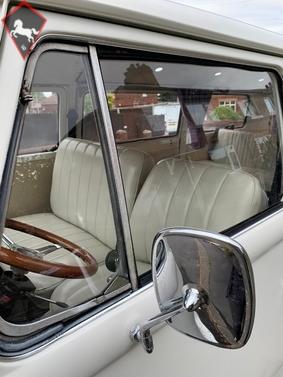









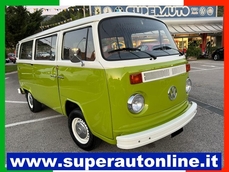
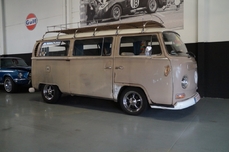
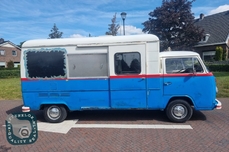
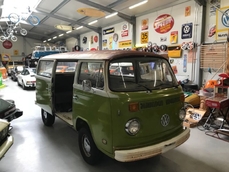
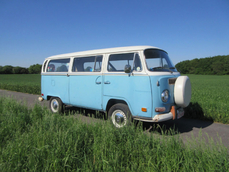

 vars & config
vars & config
 logs & msgs
logs & msgs 29
29 9752.5 KB
9752.5 KB 2021 ms
2021 ms



